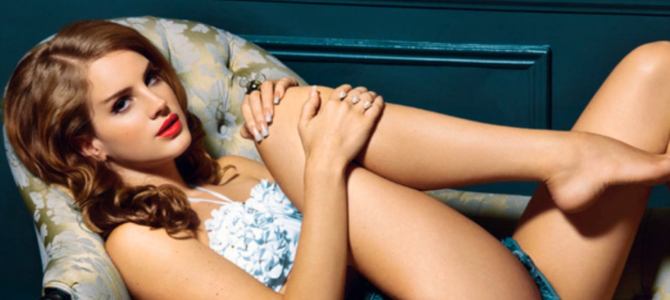
Andy Warhol famously said, “In the future, everybody will be world-famous for 15 minutes.” Thus he predicted the Internet, social media, and the digital bits and pieces of our lives we share with one another. We may not consciously cultivate an image, a brand, but we are the directors of our 15 minutes. We choose pictures, art, statements, jokes that support what we envision ourselves to be. Sometimes we succeed; sometimes the façade is cracked and we reveal ourselves as humans after all. Regardless, we never question our own authenticity even as we cultivate an image.
When it comes to more public figures, those who choose to actually live under the glare of a much brighter spotlight, we do question authenticity. We often assume abject fakeness, particularly when a celebrity veers off script and offers an honest glimpse into her humanity, her losses and wins and fails and falls. Should she choose to do so in a serious way rather than couching those losses and fails in utter vapidity, then the long knives are drawn.
Despite my predilection for Sirens, I arrived late to the shores of Lana Del Rey. I’ll concede that my initial impulse was to label her a creation, an elaborate act in which only her most damning critics weren’t in on the joke. But as I dove into not just “Ultraviolence,” her latest album, but also her story, I realized I was wrong. Del Rey is authentic. Even if she never kissed a girl, liked it, and wrote a thumping pop anthem in response. She may, at times, be admittedly sardonic. She may, at times, counter the critics by agreeing with and amplifying their criticisms. Doesn’t that just prove that she is a carefully curated creation? Not at all. Consider the alternative:
Katy Perry, that cheeky, maybe culturally problematic but fun-as-hell pop chanteuse, has a new album hitting stores and iTunes, etc tomorrow. And, I’m happy to report that if you love sparkly, giddy, Most-Popular-Girl-In-School-Reads-The-Yearbook-Aloud sugar-pop it’s perfect. It’s also filthy.
Perry’s always been a slinger of wink wink nudge nudge type lyrics rather than the bash you over the head with a sledgehammer type of lyrics, but that’s only because modern pop music is where subtlety goes to die.
Erin Gloria Ryan, the author of the above, then goes on to give a song-by-song guide to all the silly euphemisms in Perry’s newest album. Couple that with the fact that wink wink nudge nudge is always at least a tad subtle and Ryan disproves her own thesis. But, let’s give her a pass, because she’s reaching to cover for utter vapidity and that sometimes requires contortions, such as claiming a silly analogy is actually a euphemism. Katy Perry is so fun, though, and look at her crazy boob cannons. Let’s just enjoy those.
Woman In The Machine
Now, it’s true “Ultraviolence” debuted at No. 1 and has generally received positive critical responses. But those positive responses are imbued with discussions of Del Rey the creation—the “highly stylized vixen who romanticizes fatalism to near-fatal levels.” The milker of “classic male fantasies about the sad Marilyn Monroe.” “A bruised beauty, just short of classic status.” Hey, I didn’t say positive reception precluded Del Rey being treated as a character.
Her lips, obviously infused with collagen to create the image of a sultry Siren, are an evergreen topic since makeup and professional photographers are but myths. Her father, the millionaire who bought her career because she’s obviously manufactured, is also always lurking, as is whether or not she is, in fact, authentic.
The key difference between someone like Katy Perry and Lana Del Rey is that it’s understood and accepted that the former is the invention of a bigger image-making machine. But someone like Del Rey dredges up those age-old questions around authenticity in art: Can she really sing? Is she a true artist with a real vision? Is she just a puppet of the record label? Did she write her own lyrics?
With regard to Del Rey: Yes, yes, no, yes. With regard to Perry: Who cares, who cares, who cares, who cares? Vapid thumping party rockers obviously stand on their own merits. Anything deeper must be a subterfuge of some sort. Let’s focus on that subterfuge because it challenges us, and dissent is best when silenced.
Regardless, at least Perry is obviously a creation while Del Rey is only subtly a creation. (I thought subtlety was verboten in pop? My mistake.)
Del Rey is employing one of the oldest tricks in the book: the creation of a stage persona. Some of the greatest names have done it. David Bowie and Madonna are notorious shape-shifters. So is Lady Gaga. Changing from Lizzy Grant to Lana Del Rey is not unusual when you consider that Bob Dylan’s real name was Robert Zimmerman and Iggy Pop was born James Osterberg.
Stage name or being a talented performer equals inauthentic—got it. Quick, someone write up a thinkpiece on why James Brown was a hack and Beck isn’t a real person. It might take an extra second because there aren’t shortcuts. For Del Rey, there’s the “So You Want to Write a Lana Del Rey Thinkpiece” flowchart.
Ask The Right Question
I said I wouldn’t do this, I wouldn’t write up a Lana Del Rey thinkpiece. But as my previous position was wrong and late Friday night Twitter rants are fleeting, I must. And I won’t say the situation requires a really futile and stupid gesture—that Ryan woman already handled Katy Perry and I couldn’t handle that one anyway—but I’m still just the man to do it. Because after listening to “Ultraviolence” on repeat for a number of days and doing some homework, I have developed quite a fondness for her.
Granted, she’s not the most upbeat girl. If I were hiring entertainment for one of my kids’ birthday parties, she would be low on the list. And she’s definitely a tad oversexed, although she doesn’t celebrate it. She could. She could make her confessions treacly vapidities, be fun-as-hell, and avoid claims of being focused on “romanticizing suicide and self-destruction.” Her values are not a product of “live fast, die young” Religion of Self secular humanism. No, she owns her mistakes and her confessions. “Ultraviolence” both opens and closes with her wistfully alone as a result of her decisions. And it both opens and closes with an eye toward the future.
Therein lies her beauty. Yes, she is a dark and oversexed sinner. But what is the bigger sin—being a little dark and oversexed, or vapid and oversexed?
Lest anyone be confused, I am not a theologian. But I’ll hazard a guess that dark and oversexed is more honest, more focused on atonement, more authentic. Vapid and oversexed is a sorry, not sorry. Shouldn’t the latter be a greater source of concern than the former? And great art, art which can move us and teach us, requires authenticity. It requires an artist who is willing to live under the aforementioned exceedingly bright spotlight and not flinch. Is Del Rey as remorseful as we’d like? That’s the wrong question. The right question is how remorseful we’d be, at least publicly, were we under the same glow.
Rather than cutting her to the marrow and seeking to discredit her, it’s better to appreciate that she’s willing to suffer the glare and show remorse rather than being sorry, not sorry. Brilliant artists have never eschewed hard topics, nor focused solely on the positive. Rather, they offer us a mirror into which we’d rather not see our own reflection and, after discomfiting us, remind us that, but for the grace of God, there goes us. Put differently, as Del Rey sings in “West Coast:” “But you’ve got the music, you’ve got the music in you, don’t you?”









